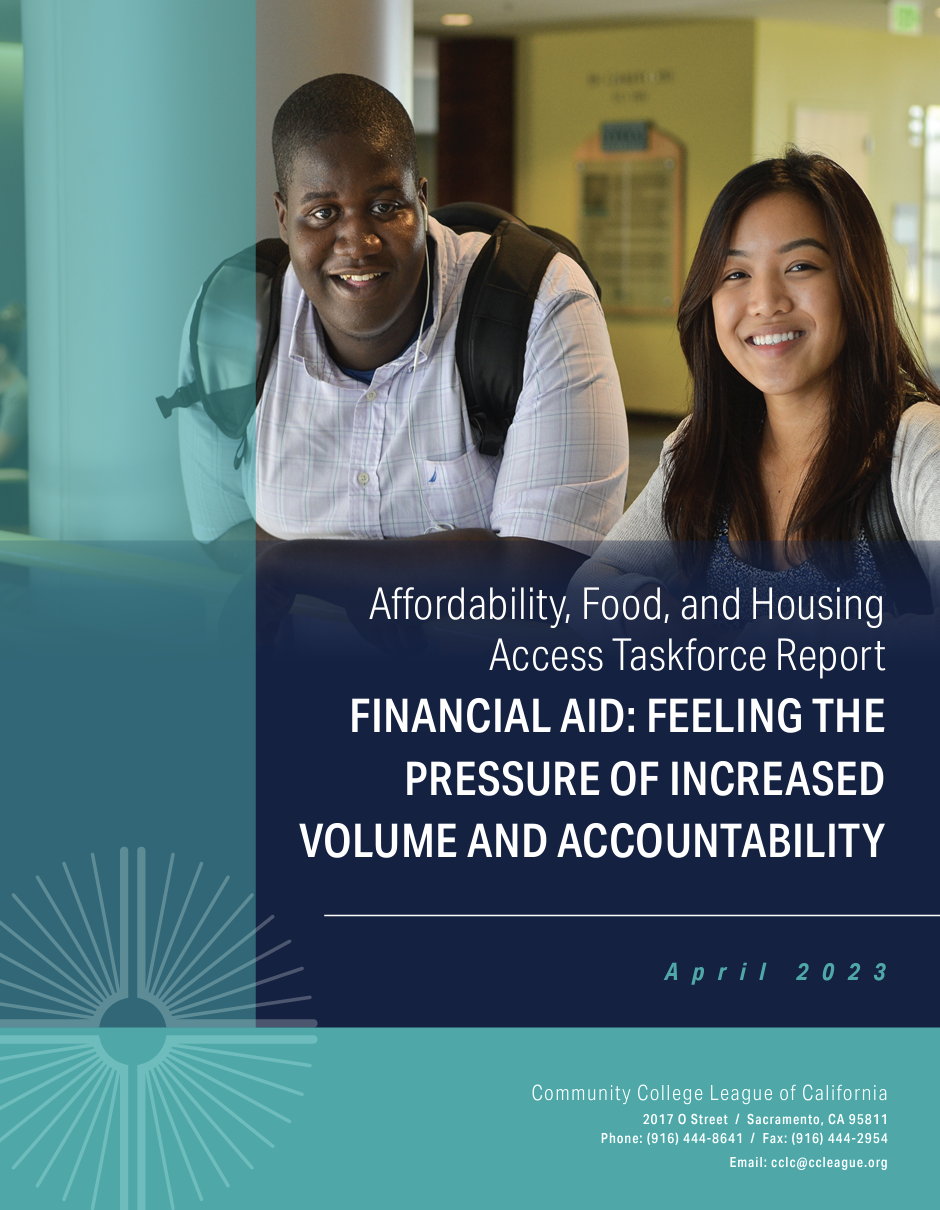New Report Released | Financial Aid: Feeling the Pressure of Increased Volume and Accountability
The Community College League of California’s Affordability, Food & Housing Taskforce has released a report calling for policy reforms that address financial aid infrastructure. “Financial Aid: Feeling the Pressure of Increased Volume and Accountability” highlights how adequate and essential funding for financial aid administration ensures that community colleges can provide direct student services supporting equitable access and basic needs.
services supporting equitable access and basic needs.
"Financial aid is central to California's ability to meet its goals for equitable degree completion and labor force participation, but the current system is under stress,” said Tammeil Gilkerson, president of Evergreen Valley College and taskforce co-chair. “To sustain the state's economic innovation and address persistent inequalities, we must structurally address underfunding and increased pressure on financial aid offices."
Today’s financial aid administrators oversee significant portfolios, and the increased complexity of financial aid distribution demands has placed stress on frontline financial aid staff members. In addition to federal and state financial aid programs, California Community College financial aid officers are tasked with administering base institutional programs, including college and external scholarship and program-related awards for students participating in programs such as EOPS/CARE and CalWorks. Typical financial aid staff members handle more than $2.7 million in grant awards—more than double the volume since the early 2000s.
"California's policymakers have boldly decided to reform the Cal Grant system for a more equitable and fair financial aid system, but this promise is under stress due to looming budget deficits,” said Gilkerson. “To reestablish California's prominence as a workforce innovation engine, we must prioritize policy reforms and adequate fiscal resources for financial aid administration."
In addition to the volume, financial aid administrators and staff have critical responsibilities in increased reporting and fraud detection efforts. Financial aid scams increased during the pandemic as colleges and universities transitioned to predominantly online course delivery. While screening filters and technology can help flag fraudulent applications, the taskforce’s report appeals for statewide support of college-level technical assistance, data security, automatic processes, and the implementation of best practices.
“The Affordability, Food & Housing Access Taskforce has identified some of the most critical issues facing our students,” said Larry Galizio, President and CEO of the Community College League of California. “The CEOs and trustees whose voices and insight are behind this report are acutely aware what is happening at their colleges. Their leadership highlights the urgent need for policy reforms to help community colleges address the volume and responsibility of financial aid programs.”
Established in the spring of 2018 by the Chief Executive Officers of the California Community Colleges (CEOCCC), the Affordability, Food & Housing Access Taskforce provides system-wide recommendations to address the prevalence of food and housing and lack of affordable access experienced by community college students. The taskforce aims to proactively engage in discussions and make recommendations for interventions and solutions based on research and input from leading scholars, practitioners and students regarding housing and hunger challenges.
View and download “Financial Aid: Feeling the Pressure of Increased Volume and Accountability.”







